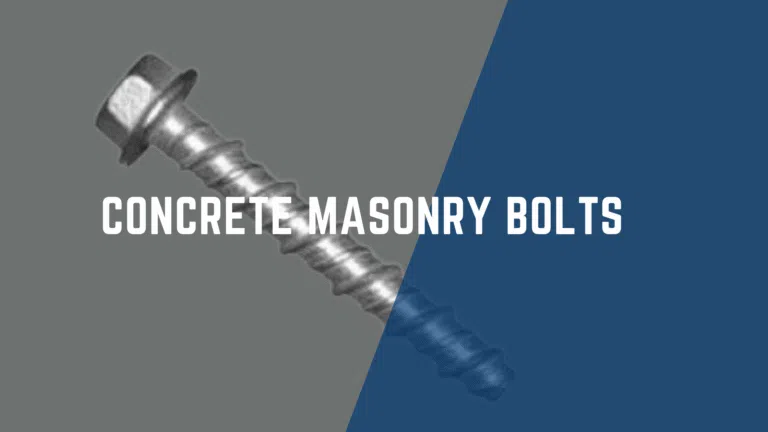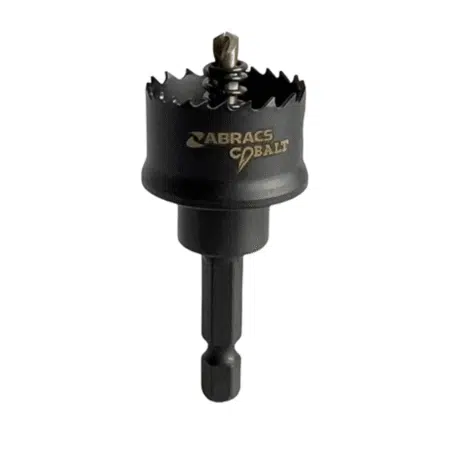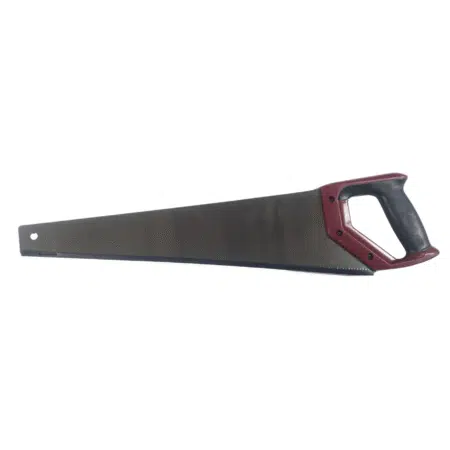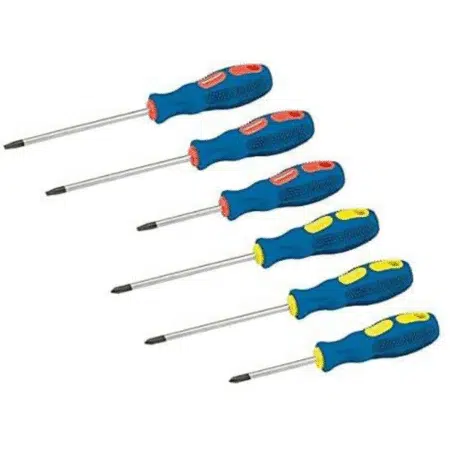Concrete masonry bolts, while often overlooked, play a significant role in the structural integrity of your projects. Understanding their reliability and potential shortcomings is necessary for ensuring safety and durability. Using non-certified bolts may seem tempting due to cost savings, but this choice can lead to serious consequences if they fail to perform under stress. By effectively assessing the implications of using these bolts, you can make informed decisions that protect your investment and ensure project success. A comprehensive concrete masonry bolts overview will help you understand the different grades and specifications available, as well as their suitable applications. By prioritizing quality and adhering to industry standards, you can minimize the risk of structural failures and enhance the longevity of your projects. Additionally, training your team on best practices for installation can further improve the effectiveness of these crucial components.
Key Takeaways:
- Utilising non-certified concrete masonry bolts can lead to safety risks, as they may not meet industry standards for load-bearing and structural integrity.
- Projects may face legal and financial repercussions if non-certified materials are used, including potential liability in the event of structural failure or accidents.
- Choosing certified materials helps ensure compliance with building regulations and can enhance the overall quality and longevity of the construction project.
 The Vital Role of Concrete Masonry Bolts in Construction
The Vital Role of Concrete Masonry Bolts in Construction
Concrete masonry bolts are crucial components that ensure stability and reliability in construction projects. Their ability to connect different structural elements allows you to create durable frameworks capable of withstanding various stresses. Neglecting the quality of these bolts, particularly when they are non-certified, could jeopardise the overall safety of your structure, impacting both project timelines and costs significantly. Understanding how to use masonry bolts correctly is essential for maximizing their effectiveness and ensuring a secure connection between components. Proper installation techniques, such as pre-drilling and using the right torque settings, can further enhance the integrity of your construction. Investing time in training your team on the best practices will lead to higher quality workmanship and increased safety standards on the job site.
Structural Integrity and Load Bearing
In terms of structural integrity, concrete masonry bolts must bear substantial loads without compromising safety. Utilising non-certified bolts risks underperformance; they might not meet the required specifications for load-bearing capacity. In applications where heavy loads are commonplace, such as multi-storey buildings or industrial facilities, ensuring that concrete masonry bolts are reliable is non-negotiable. Thou shalt not overlook the potential hazards associated with substandard materials. Investing in high-quality concrete masonry bolts not only enhances structural integrity but also provides peace of mind for builders and occupants alike. The concrete masonry bolts safety benefits extend beyond mere load-bearing; they contribute significantly to the overall durability and resilience of the structure. By prioritizing reliable materials, construction professionals can mitigate risks and ensure the longevity of their projects.
Resistance to Environmental Factors
Concrete masonry bolts are designed to withstand a variety of environmental challenges, including moisture, temperature fluctuations, and corrosive agents. Non-certified bolts often lack the protective coatings or quality materials necessary for enduring these conditions, leading to premature failure. This could jeopardise your project’s longevity and necessitate costly repairs. By choosing high-quality concrete masonry bolts, you enhance your structure’s resilience and prolong its lifespan. Thou must consider the detrimental effects of environmental factors before selection.
- Environmental challenges such as moisture and corrosion
- Durability against temperature fluctuations
- Preventing failures that lead to costly repairs
- Lifespan extension of your structure
In regions where the climate can be particularly harsh, selecting top-grade concrete masonry bolts becomes paramount. High-quality bolts are often treated with specialised coatings that not only prevent corrosion but also enhance their grip in varying temperatures. You would notice a marked difference in performance, promptly responding to your needs for safety and stability. Thou would be wise to invest in bolts tailored to withstand environmental factors.
- Specialised coatings enhance resistance
- Grip enhancement in varying temperatures
- Performance responds to safety needs
- Investment in long-term durability
Risks of Using Non-Certified Concrete Masonry Bolts
Utilising non-certified concrete masonry bolts can expose your project to significant risks. These bolts may lack the necessary quality controls, resulting in poor performance under stress or extreme conditions. Instances of structural failure due to substandard fastening materials can lead not only to project delays but also to potential hazards that compromise the safety of workers and the public alike.
Safety and Liability Concerns
Employing non-certified bolts raises safety concerns that cannot be overlooked. If a bolt fails, the consequences can be dire, resulting in accidents and injuries. You may face not only the immediate impact on safety but also the potential for legal liability should any harm arise from negligence in choosing proper materials.
 Financial Implications of Failure
Financial Implications of Failure
In the unfortunate event of a structural failure, the financial repercussions can be overwhelming. You could be looking at hefty costs related to repairs, compensation claims, and even potential legal fees. The damage to your reputation in the industry can further lead to lost contracts and future projects, impacting your overall profitability.
Consider the long-term financial impact of a failure associated with non-certified bolts. Repair costs can soar into the tens of thousands, especially if the failure occurs on a large scale or in a high-profile project. You should account for possible penalties from regulatory bodies, which can impose significant fines. Having to rebrand after a failure due to negligent material choices can diminish client trust, leading to a direct loss of revenue and a lingering downturn in business opportunities. Prioritising quality and compliance may seem like a higher upfront cost, but it ultimately safeguards your budget and professional credibility.
Navigating Standards and Certifications
Understanding the landscape of standards and certifications is vital for any construction project utilising concrete masonry bolts. With varying guidelines and compliance requirements, it can be challenging to ascertain which products truly meet necessary benchmarks. You will find that adhering to these standards not only enhances safety but also ensures that your project complies with legal obligations and industry expectations. Weighing the implications of using non-certified bolts underscores the need for due diligence in selecting the right materials.
The Importance of Compliance
Compliance with established standards is fundamental to guaranteeing the safety and durability of your construction projects. Non-compliance risks not only the structural integrity of your work but can also expose you to potential litigation and liability, diminishing your project’s success. The absence of certification may lead to unforeseen failures, particularly under stress, which could ultimately undermine years of planning and investment.
Key Certification Bodies and Their Impact
Several prominent certification bodies set the benchmarks for constructing with concrete masonry bolts. Organisations such as the British Standards Institution (BSI) and the International Organisation for Standardisation (ISO) establish rigorous testing protocols and guidelines that ensure product safety and performance. Partnering with certified products from these entities enhances your project’s credibility while providing peace of mind regarding compliance with safety regulations.
The influence of certification bodies extends far beyond mere paperwork. For instance, the BSI provides a Kitemark that signifies compliance with specific product standards, offering assurance to customers and end-users about performance and quality. Certifications from recognised bodies can significantly impact your choice of materials, as they not only reflect compliance but can also improve your project’s reputation. Additionally, these certifications may open doors to increased insurance coverage and better financing options, making them not just a regulatory hurdle but a valuable asset in your project’s life cycle.
Choosing the Right Concrete Masonry Bolts for Your Project
Selecting the right concrete masonry bolts is vital for ensuring the longevity and safety of your construction project. Focus on the specific requirements such as load, environmental conditions, and the type of masonry you are working with. A thorough understanding of these aspects will lead you to the correct selection that minimises risk and maximises efficiency. Additionally, considering the concrete masonry screw benefits can provide additional advantages such as increased holding power and ease of installation. These screws are designed to resist corrosion and are compatible with a range of materials, making them a versatile choice for various applications. Ultimately, prioritizing the right hardware will ensure a durable and secure foundation for your project.
Factors to Consider When Selecting Bolts
Various considerations should inform your choice of concrete masonry bolts. These include:
- Loading Requirements – Understand the load capacities needed for your project.
- Environmental Conditions – Assess exposure to moisture, chemicals, and temperature variations.
- Thread Type – Choose between coarse and fine threads based on the substrate.
- Length and Diameter – Determine the proper sizing to ensure a secure fit.
The right combination of these factors will ensure that your projects stand the test of time.
 Best Practices for Installation and Inspection
Best Practices for Installation and Inspection
Following best practices during installation and routine inspections will greatly enhance the effectiveness of your concrete masonry bolts. Make sure to maintain the correct torque specifications, ensuring that the bolts are not over-tightened, which may lead to structural damage. Regularly inspect for signs of wear or corrosion in the masonry environment to catch potential issues early.
During installation, pre-drill the holes accurately to avoid any misalignment that could stress the bolts excessively. Utilising a torque wrench will help you achieve the appropriate tension without compromising the integrity of the bolts or the concrete. Inspection should occur at regular intervals, especially in critical applications, to identify potential issues such as rust or degradation, allowing you to take corrective action before failure occurs. Keeping a maintenance log can also serve as a valuable reference for any necessary adjustments or replacements.
Future Implications: Trends in Concrete Masonry Fastenings
Emerging trends in concrete masonry fastenings suggest a shift towards more sophisticated and efficient solutions. As construction evolves, you can expect innovations that enhance performance while increasing sustainability. Bolts designed with advanced materials will likely dominate the market, catering to the growing demands of modern engineering needs. Additionally, adopting smart technologies to monitor fastening integrity could become commonplace, pushing the boundaries of structural reliability.
Innovations in Bolt Design and Materials
Advancements in bolt design and materials are transforming the industry. You will see a rise in the use of high-strength alloys and coatings that resist corrosion, thus significantly extending the lifespan of fastenings. Innovative geometric designs that improve load distribution will also become more prevalent, making your projects safer and more durable. These developments demonstrate a shift towards high-performance solutions that meet the rigorous demands of contemporary construction.
The Impact of Sustainable Practices on Fastening Solutions
Sustainable practices are reshaping fastening solutions in significant ways. By prioritising eco-friendly materials and manufacturing processes, you can contribute to a greener construction industry. Many suppliers are now offering fastenings made from recycled materials or those that promote energy efficiency. Additionally, the emergence of biodegradable alternatives reflects the industry’s response to environmental concerns, ensuring that your projects align with modern sustainability standards.
As the construction industry pivots towards sustainability, you’ll likely encounter developments that focus on reducing waste and environmental impact. For instance, companies are increasingly investing in methods that ensure fastenings can be reused or recycled after their initial use. This not only conserves resources but also creates a more circular economy for construction materials. By embracing these eco-friendly practices, you’ll be part of a larger movement that prioritises not just efficiency, but responsibility to the environment in concrete masonry projects.
Conclusion
Following this, understanding the implications of using non-certified concrete masonry bolts is necessary for your projects. These bolts may save costs upfront, but their lack of certification can compromise the safety and integrity of your structures. By opting for certified alternatives, you ensure compliance with industry standards and reduce the risk of future complications, protecting both your investment and the wellbeing of users. Hence, investing in quality fasteners ultimately leads to more reliable and enduring outcomes for your construction endeavours.
FAQ
Q: What are concrete masonry bolts and why are they used?
A: Concrete masonry bolts are specialised fasteners designed to anchor materials to concrete or masonry structures. They typically feature a ribbed or threaded shaft which provides a secure grip within the masonry, ensuring stability and strength for various construction applications. These bolts are often used in both residential and commercial projects for attaching fixtures, mounting equipment, or securing structural elements to masonry surfaces.
Q: Why is there a concern about non-certified concrete masonry bolts?
A: Non-certified concrete masonry bolts may not have undergone rigorous testing and standards validation, which raises potential safety and reliability issues. The use of uncertified bolts can lead to structural failures or detachments, especially in high-stress applications or critical infrastructures. Therefore, it is crucial to consider the certification of concrete masonry bolts to ensure they meet industry norms and perform effectively in their intended applications. Furthermore, understanding the various types and specifications available can aid in selecting suitable options for specific projects. A concrete masonry bolts overview enables engineers and builders to make informed decisions, ensuring that they choose products that not only fit the required standards but also provide the necessary strength and durability. Ultimately, investing in certified bolts can mitigate risks and enhance the longevity of structures.
Q: How can the use of non-certified bolts affect the overall project?
A: Utilising non-certified bolts may introduce significant risks, including compromised safety and increased likelihood of repair or rework. If a project relies on non-compliant fasteners, it could jeopardise structural integrity, potentially leading to project delays, increased costs, and even liability issues in the event of failure. Thus, selecting the right type of anchor, particularly certified options, can save time and resources in the long run.
Q: What should I consider when selecting concrete masonry bolts for my project?
A: When dicking out concrete masonry bolts, consider the following factors: the load requirements, environmental conditions, and compatibility with the materials being fastened. Additionally, verify that the bolts are certified to ensure they meet the appropriate standards for quality and safety. Consulting with a construction professional or engineer can also help guide the selection process and enhance the overall reliability of the project. It’s also important to review the concrete masonry bolt specifications to ensure they align with the specific demands of the installation. Failing to adhere to these specifications can lead to structural issues and compromise the integrity of the construction. Furthermore, regular inspections and maintenance of the installed bolts can prevent potential failures and extend the lifespan of the project.
Q: Are there alternative fastening options to concrete masonry bolts?
A: Yes, there are various alternatives to concrete masonry bolts, including expansion anchors, adhesive anchors, and sleeve anchors. The choice of fastening option depends on the specific application, load requirements, and environmental conditions. It is crucial to evaluate each option’s advantages and limitations and, ideally, consult with a construction expert to determine the most suitable choice for your project’s needs.
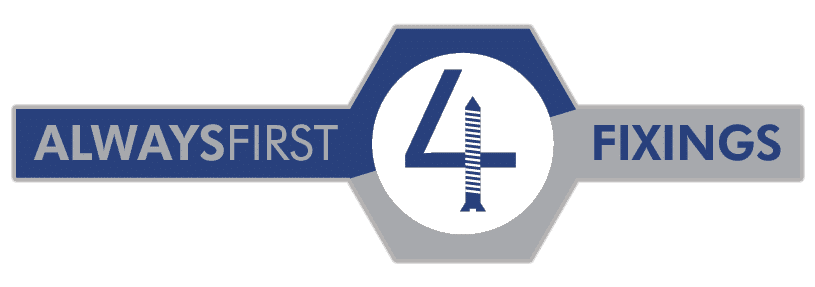
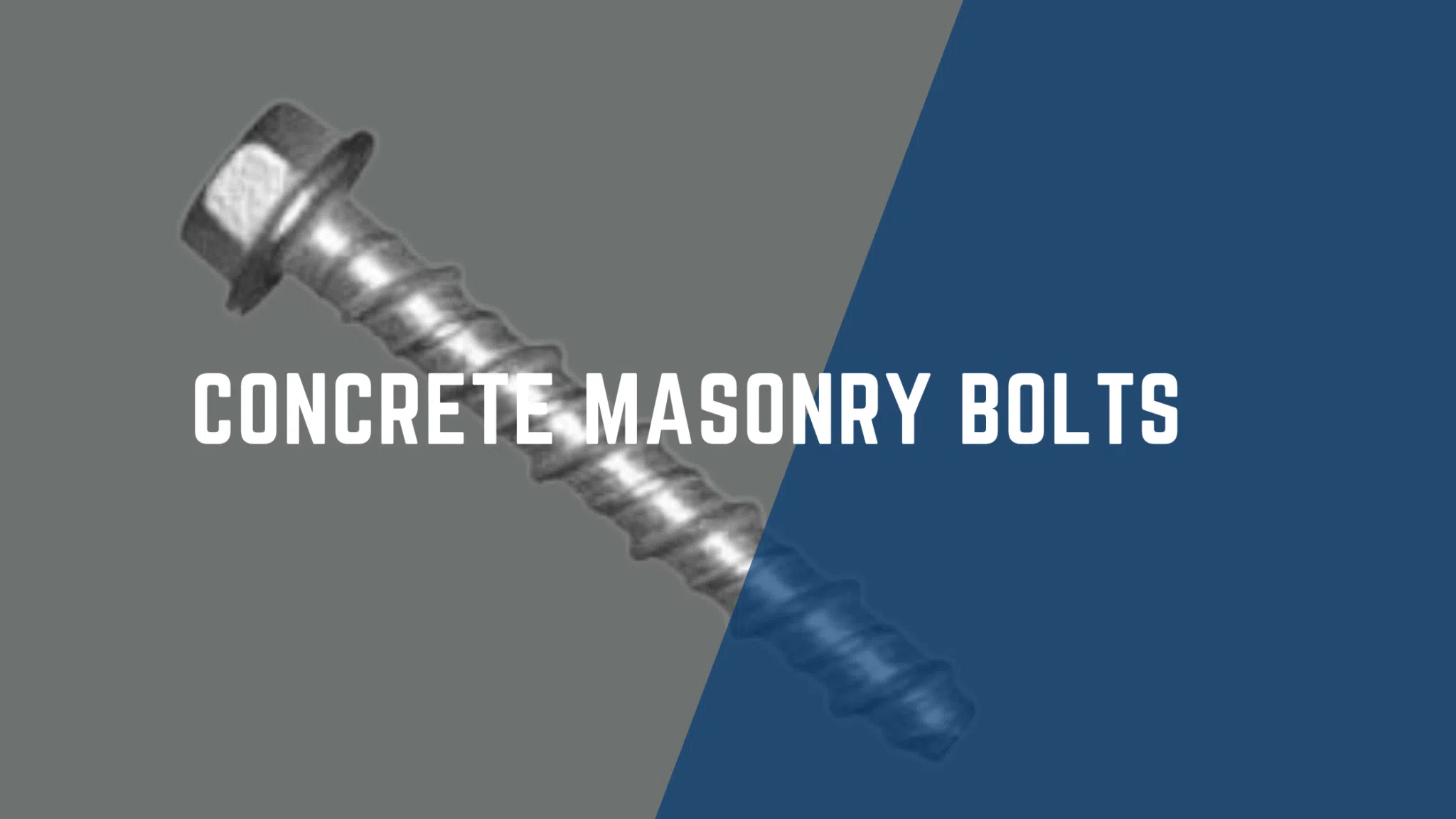
 The Vital Role of Concrete Masonry Bolts in Construction
The Vital Role of Concrete Masonry Bolts in Construction Financial Implications of Failure
Financial Implications of Failure Best Practices for Installation and Inspection
Best Practices for Installation and Inspection